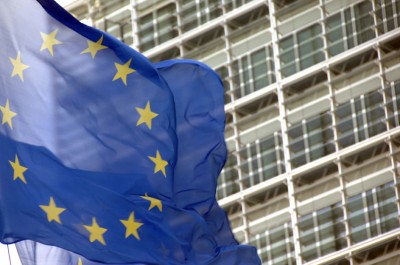Prime Minister Jens Stoltenberg welcomed an EU agreement reached during the night that’s aimed at relieving the European debt crisis, but he repeated warnings of tougher economic times ahead, also in Norway. Financial problems in Europe will hurt the Norwegian economy, and in some areas already are.

A deal worked out after marathon negotiations led by German Chancellor Angela Merkel and French President Nicolas Sarkozy leaves private creditors, mostly European banks, reluctantly agreeing to write down the value of Greek bonds by half. That in turn cuts Greece’s total national debt by about a third, meaning the country once again avoids formal bankruptcy, while EU leaders also agreed on a recapitalization plan for the banks.
Norwegian banks will also be affected by new, stricter capitalization rules, while the plan is aimed at propping up the euro. The EU crisis fund meant to stabilize the banks will seek new capital from outside the EU, with some of it also likely to come from Norway.
Norway is not a member of the EU but the EU represents Norway’s largest market and trading partner, so its fortunes mean a lot for the Norwegian economy. Stoltenberg, whose plans for a “working dinner” with Merkel at the German government’s official residence Wednesday night were disrupted by the crisis meeting, remains worried.
“Setbacks in Europe mean people will buy fewer Norwegian goods and services,” Stoltenberg told reporters. “Loans will be more expensive and more people will be unemployed. We’re already seeing major reductions in prices for aluminum and salmon.”
Norwegian companies, from seafood to furniture producers, will sell less because export demand will fall. Norwegian producers will face falling prices, while turbulence in the financial markets will tighten credit in Norway. Several Norwegian banks have already been raising interest rates even though Norway’s central bank has kept its key rates low.
Newspaper Dagsavisen reported that Stoltenberg fears a split economy in Norway, where the oil and gas industry is vigorous while other industries that are more vulnerable to international competition struggle. The problem, according to Stoltenberg, is that the state budget isn’t structured to address such a situation. “We can invest in more buildings and infrastructure, but we can’t buy up paper, salmon, aluminum or solar cell panels,” Stoltenberg said, referring to Renewable Energy Corp (REC’s) decision Wednesday to shut down four production plants serving the solar energy industry.
Stoltenberg said Norway won’t provide direct aid packages to the EU, but noted that Norway will take part in programs through the International Monetary Fund (IMF) and that Norway’s enormous “oil fund” has invested in European stocks and bonds for many years. It also has invested in the EU’s crisis fund EFSF, which has worried some politicians, but Finance Minister Sigbjørn Johnsen seemed relaxed and said he won’t “instruct” the fund on its EFSF involvement. “That would be like moving responsibility for individual decisions from manager to owner, and that would violate our mandate,” Johnsen told news bureau NTB. The oil fund is managed through a division of the central bank.
Views and News from Norway/Nina Berglund
Please support our stories by clicking on the “Donate” button now:

